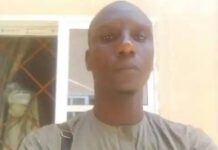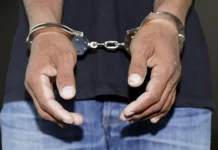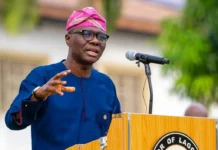 Obasanjo mediates in Senegal’s political crisis
Obasanjo mediates in Senegal’s political crisis
FROM being a haven of illegal arms, Africa may transform to a continent of peace and stability in the next four years going by the agenda unfolded by the new leaders of the Economic Community of West African States (ECOWAS).
This is coming as former President Olusegun Obasanjo has been dispatched by the ECOWAS to help mediate in the political crisis in Senegal.
The President of the ECOWAS Commission, Ambassador Kadre Desire Ouedraogo of Burkina Faso is not a stranger to Nigeria and the sub-regional group having served the organisation as Deputy Executive Secretary in Lagos between 1985 and 1993 before the organisation relocated to Abuja.
He replaced Victor Gbeho of Ghana who left the post after two years. The ECOWAS institution, which transformed from an Executive Secretariat to a Commission in 2007, now has all of its seven commissioners assuming office at the end of last week’s summit.
The new chairman of the ECOWAS authority Ivoirien Alhassane Ouatarra has also pledged to combat the growing scourge of disunity among the sub-regional leaders.
Speaking on his new mandate, the new ECOWAS helmsman outlined his priorities towards perfecting the union and integration agenda for the benefit of the 15-nation community with a combined population of more than 300 million people.
These include strengthening of regional institutions and electoral structures to deepen democracy and the rule of law.
President Ouattara said ECOWAS under his tenure would deploy necessary efforts to curb terrorism, piracy, banditry and the influx of illegal arms.
The new chairman also stressed the need for the strengthening of internal solidarity among member states to ensure that the organisation speaks with one voice at international fora.
On the economic front, he called for respect for community decisions and the need to fast-track economic integration through the mechanism of a common market.
Ouattara then affirmed that a vision of a citizen-centered ECOWAS is to be pursued vigorously, with the effective implementation of the organisation’s flagship protocol on free movement of people, goods and right of establishment of community citizens.
On the saddle of the commission’s machinery now also is a new vice-president and six commissioners, who took over from the pioneer commissioners earlier this month. The four-year tenure of the seventh pioneer commissioner for Human Development and Gender, Dr. Adrienne Diop, expires in June 2012.
According to the ECOWAS Commission, former President Obasanjo who is on a Joint African Union-ECOWAS High-Level Mission is expected to engage all political stakeholders in Senegal, with a view to promoting dialogue and ensuing peaceful, fair and transparent elections in that country.
That country’s presidential elections are scheduled for 26th of this month. But recent protests by opposition parties over presidential term dispute resulted in loss of lives and destruction of property.
The commission said in this regard: “As part of the determination to deepen democratic culture and good governance in the region, the summit directed the ECOWAS Commission to continue to assist member-states in their electoral processes to ensure the conduct of free, fair and transparent elections.”
On peace and security, the ECOWAS Authority strongly condemned the Azawad National Liberation Movement (MNLA) rebellion in Mali and expressed its full support for the efforts by the government of Mali to defend the country’s territorial integrity.
In this regard, the leaders called for immediate and unconditional cessation of hostilities by the rebels and on all parties involved in the crisis to engage in an inclusive dialogue for a peaceful resolution of the crisis.
The Guardian learnt yesterday that the Authority has already directed the Chairman of the Council of Ministers to convene as soon as possible a meeting to consider the allocation of outstanding statutory positions within the ECOWAS institutions and agencies.
Among the positions are those of four judges in the Community Court of Justice as well as the West African Health Organisation and the Inter-Governmental Action Group Against Money Laundering in West Africa (GIABA).




